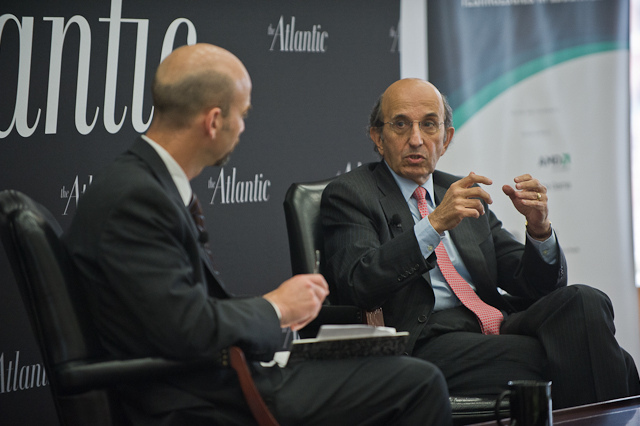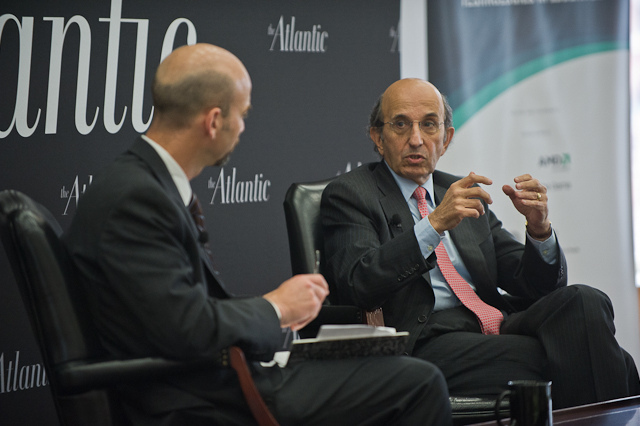Upgrading Educational Technologies for the 21st Century

A discussion between James Bennet, editor-in-chief of The Atlantic, with Joel Klein, News Corporation’s executive vice president and former chancellor of the New York City Department of Education, offered a realistic assessment of some of the political and practical challenges standing in the way of educational technologies. The Atlantic’s Technologies in Education Forum on May 22 brought together experts and stakeholders from across sectors for a stimulating, in-depth look at how technology can and should reshape American education. Amy Southerland writes for The Atlantic, May 23, 2012.
Brandon Busteed, executive director at Gallup Education, posed a thought-provoking question: “What is the ultimate outcome of an education?” Joel Klein responded that there are many worthy outcomes–not just one. However, the outcome he worries about the most, is the one where we are failing the most. We must ensure that students “have the skills and knowledge to be effective players in the 21st century.”
Paula Kerger, CEO of PBS, pointed out that employers are demanding an array of skills not taught in classrooms and once a child starts behind, they stay behind. Without early education, students are not prepared for what the workplace of the future will require.
Microsoft’s Andrea Taylor and Linda Rosen, CEO of Change the Equation, both spoke to the mismatch between the large number fo STEM jobs available and the small pool of college graduates with STEM degrees. As a nation, we aren’t cultivating the STEM workers we need to be competitive in the the global marketplace. Though there are ample job opportunities, when young people don’t consider STEM careers, there is a disconnect between supply and demand.
New technologies can help empower educators to better prepare our students by increasing student engagement and allowing for individualized learning.
Larry Irving, founder of the Internet Innovation Alliance, called technology “the great equalizer.” In a panel discussing the role teachers will play in game-based learning, Dr. Jeanne Paratore, professor in the Department of Curriculum and Teaching at Boston University, said that for students who are struggling, “we have power in these games to provide opportunities that aren’t there.” And Robert Torres, senior program officer at the Bill & Melinda Gates Foundation, recognized the unique potential of using games that combine high engagement with high cognitive demand to help students achieve mastery using technologies day-to-day.
We have the technology at our fingertips and transformative change is right around the corner.

